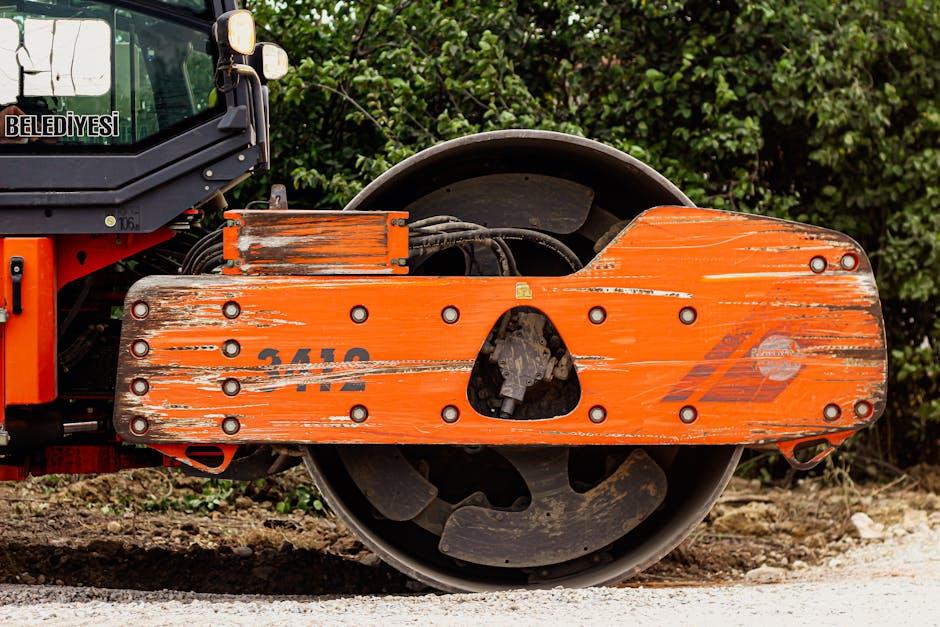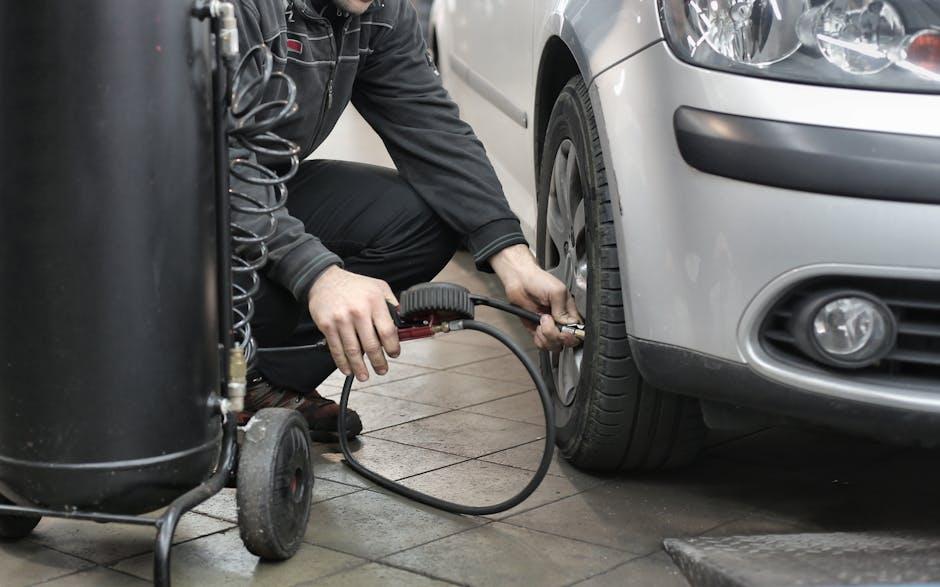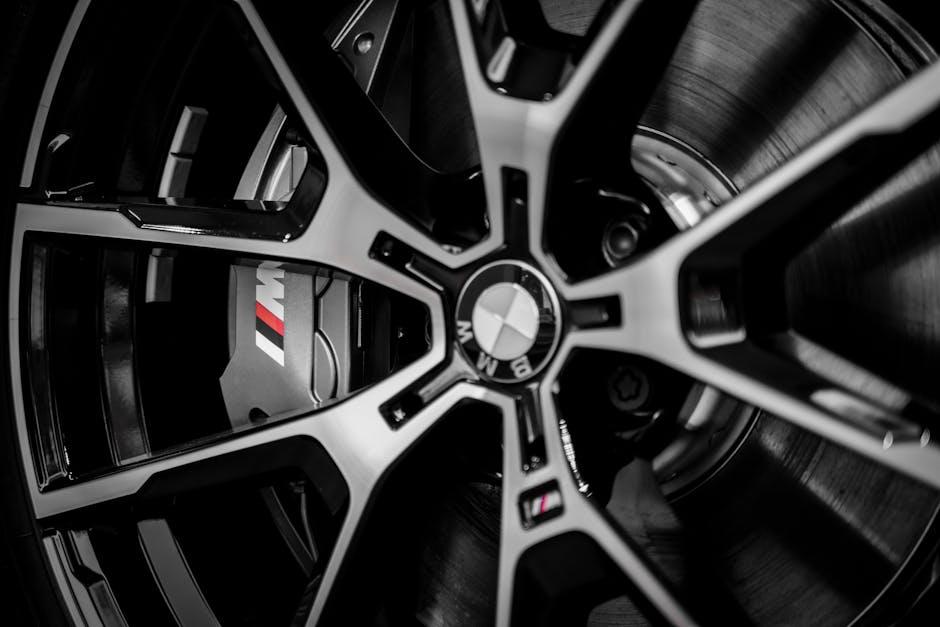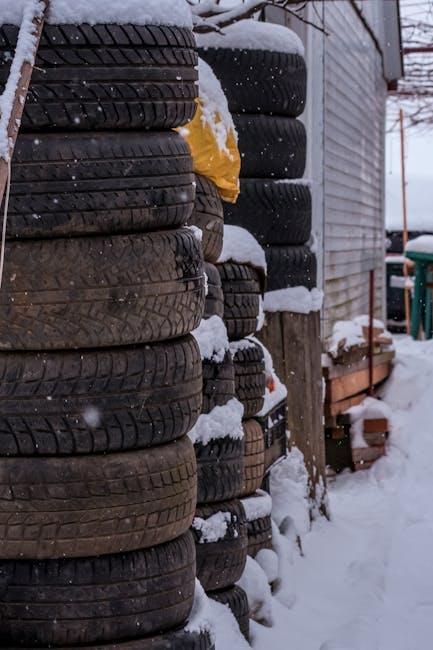Cars are more than just machines; they’re trusted companions that carry us through daily commutes, road trips, and memorable moments. But when unexpected breakdowns strike, those trusted companions can quickly turn into costly burdens. Avoiding expensive car repairs doesn’t require a mechanic’s degree or a fortune in spare parts—it starts with smart habits and timely attention. In this article, we will explore practical strategies to keep your vehicle running smoothly and your wallet intact, ensuring that your journey remains worry-free and your car stays on the road longer.
Table of Contents
- Choosing the Right Maintenance Schedule for Your Vehicle
- Mastering the Art of Regular Inspections and Early Problem Detection
- Essential Fluids to Monitor and Replace for Longevity
- The Impact of Quality Parts and Professional Service on Repair Costs
- Driving Habits That Can Save Your Car and Your Wallet
- Preparing Your Car for Seasonal Changes to Prevent Unexpected Repairs
- Q&A
- Future Outlook

Choosing the Right Maintenance Schedule for Your Vehicle
Establishing a maintenance routine tailored to your vehicle is crucial in warding off unexpected breakdowns and costly repairs. Start by consulting your owner’s manual, which offers a manufacturer-approved service timeline designed to keep your car running smoothly. Remember, not every vehicle needs every service at the same interval; knowing whether your car is better suited for time-based or mileage-based maintenance can lead to smarter, cost-effective choices.
Consider setting up a personalized checklist that includes key service milestones such as oil changes, brake inspections, tire rotations, and fluid top-ups. Here’s a simplified guide to help you prioritize your car’s upkeep:
- Every 5,000 to 7,500 miles: Oil and filter change
- Every 10,000 to 15,000 miles: Air filter replacement and tire rotation
- Annually: Brake system check and fluid levels inspection
- Every 30,000 miles: Transmission and coolant flush (if applicable)
| Service | Recommended Interval | Benefits |
|---|---|---|
| Oil Change | 5,000 – 7,500 miles | Maintains engine lubrication, prevents wear |
| Tire Rotation | 10,000 – 15,000 miles | Promotes even tire wear, extends tire life |
| Brake Inspection | Annually | Ensures safety, prevents brake failure |
| Coolant Flush | Every 30,000 miles | Prevents overheating, protects engine |

Mastering the Art of Regular Inspections and Early Problem Detection
Regular check-ups are the backbone of vehicle longevity and cost-efficiency. Making inspection a non-negotiable part of your routine allows you to spot early signs of wear and tear before they escalate into expensive repairs. Pay close attention to tire pressure, brake pad thickness, fluid levels, and the condition of belts and hoses. These small details often reveal the health of your car’s essential systems. Incorporating a checklist not only streamlines this process but also ensures no critical aspect is overlooked:
- Inspect tire condition: Look for uneven tread wear and proper inflation.
- Brake system: Listen for squeaks and check pad thickness.
- Fluid checks: Engine oil, coolant, brake fluid, and transmission fluid levels.
- Battery health: Clean terminals and check corrosion.
- Lights and signals: Test to ensure all bulbs are functioning correctly.
| Inspection Area | Signs of Trouble | Benefits of Early Detection |
|---|---|---|
| Brakes | Squealing, reduced responsiveness | Prevent total brake failure and costly replacements |
| Engine Oil | Dark, gritty, or low levels | Protect engine components and improve fuel efficiency |
| Tires | Uneven wear, low pressure | Enhance safety and extend tire lifespan |
Equipping yourself with the habit of early problem detection encourages proactive maintenance rather than reactive fixes. This mindset shift allows you to anticipate issues — such as a minor oil leak or a loose belt — meaning repairs are simpler, less stressful, and far more affordable. Additionally, partnering with a trusted mechanic for scheduled inspections provides professional insights that might escape the casual observer. With diligence, your car continues to perform reliably, sparing you from inconvenient breakdowns and hefty bills down the line.

Essential Fluids to Monitor and Replace for Longevity
Keeping your vehicle’s vital fluids in check is one of the smartest ways to extend its lifespan and dodge unexpected repair bills. Your car depends on several key fluids to function smoothly, including engine oil, coolant, transmission fluid, and brake fluid. Each serves a unique purpose—from lubricating melee engine parts to regulating temperature and ensuring safe braking. Neglecting to monitor and replace these fluids regularly can lead to costly damage, such as engine seizure, overheating, or brake failure.
To stay ahead of potential problems, consider this quick reference chart outlining essential fluids, their recommended replacement intervals, and what symptoms to watch for:
| Fluid Type | Replacement Interval | Warning Signs |
|---|---|---|
| Engine Oil | 5,000 – 7,500 miles | Engine noise, oil discoloration |
| Coolant | 30,000 miles or 2 years | Overheating, sweet smell |
| Transmission Fluid | 30,000 – 60,000 miles | Slipping gears, delayed shifts |
| Brake Fluid | 2 years | Spongy brakes, warning light |
Regularly inspecting these fluids keeps your car’s internal systems in harmony, prevents breakdowns, and ultimately saves you a bundle in repair costs.

The Impact of Quality Parts and Professional Service on Repair Costs
Opting for high-quality replacement parts and entrusting your vehicle to experienced professionals can significantly reduce the chances of recurrent issues, saving you from unexpected expenses down the road. Inferior parts may appear cost-effective initially but often lead to premature wear and tear, causing repetitive failures that balloon your repair bills. Similarly, skilled technicians bring precision, ensuring repairs are done right the first time, minimizing the risk of additional damage and unnecessary return visits.
Consider the following benefits that directly influence repair costs:
- Durability: Quality parts provide longer service life, reducing replacement frequency.
- Warranty Coverage: Premium parts often come with warranties, offering protection against defects.
- Expert Diagnosis: Professional mechanics identify root causes effortlessly, avoiding patchwork fixes.
- Safety Assurance: Correct installations uphold vehicle safety standards, preventing further costly consequences.
| Aspect | Quality Parts | Professional Service |
|---|---|---|
| Cost Impact | Lower long-term maintenance | Reduced labor redo |
| Performance | Consistent reliability | Accurate repairs |
| Warranty | Extended support | Service guarantees |
| Peace of Mind | Less breakdown risk | Trustworthy expertise |

Driving Habits That Can Save Your Car and Your Wallet
Mastering the art of smooth acceleration and gentle braking is more than just a safety habit—it’s a secret weapon against premature wear and tear on your vehicle. Avoiding sudden starts and stops reduces strain on your car’s transmission and brake system, which in turn delays costly replacements and repairs. Additionally, maintaining a consistent speed with the help of cruise control on highways can enhance fuel efficiency and keep your engine running cleaner for longer periods. Remember, your car’s longevity often hinges on the subtle choices you make behind the wheel every day.
Parking and maneuvering thoughtfully also play a significant role in saving money down the road. Here are some simple tactics that can make a difference:
- Utilize shaded or covered parking to protect your car’s paint and interior from sun damage.
- Steer clear of rough or unpaved roads when possible to minimize suspension wear.
- Avoid overloading your vehicle as extra weight stresses the engine, brakes, and tires.
| Driving Behavior | Potential Savings |
|---|---|
| Smooth Acceleration & Braking | Up to 30% less brake wear |
| Consistent Highway Speed (Use of Cruise Control) | 5-10% better fuel economy |
| Avoiding Overloads | Prolongs engine & tire life |

Preparing Your Car for Seasonal Changes to Prevent Unexpected Repairs
When the temperatures and weather patterns begin to shift, your vehicle requires special attention to stay in prime condition. Regularly inspect your tire pressure and tread depth; cold air can cause tires to deflate, reducing grip and increasing wear. Don’t overlook fluid levels either—engine oil, antifreeze, and windshield washer fluid should be topped up or swapped to formulas suited for winter or summer use. Additionally, test your battery and lighting systems, as shorter days and chilly starts can expose any weak spots before they become roadside emergencies.
Focus areas to prepare your car for seasonal transitions:
- Check and replace windshield wipers for optimal visibility.
- Switch to weather-appropriate tires (all-season, winter, or summer).
- Inspect belts and hoses for cracks or brittleness caused by temperature shifts.
- Ensure the heating and cooling systems work efficiently.
- Lubricate door locks and hinges to prevent freezing or sticking.
| Season | Key Maintenance Task | Benefit |
|---|---|---|
| Winter | Use winter tires & antifreeze | Enhanced traction and engine protection |
| Spring | Inspect for winter damage | Catch wear and tear early |
| Summer | Check coolant & air conditioning | Prevents overheating and ensures comfort |
| Fall | Test battery and replace wipers | Reliable starts and clear vision |
Q&A
Q&A: How to Avoid Costly Car Repairs
Q1: Why is regular maintenance important for my car?
A: Think of your car as a living machine—it needs routine care to keep running smoothly. Regular maintenance like oil changes, tire rotations, and brake inspections catch small issues before they turn into expensive repairs. Preventive care saves money and prolongs your vehicle’s lifespan.
Q2: How often should I check my car’s fluids?
A: Fluids are your car’s lifeblood. Checking oil, coolant, brake fluid, and transmission fluid at least once a month helps spot leaks or contamination early. Maintaining proper fluid levels prevents engine overheating and component damage, cutting down repair costs.
Q3: Can driving habits affect repair bills?
A: Absolutely! Gentle driving puts less strain on your engine and brakes, reducing wear and tear. Avoid rapid acceleration, sudden stops, and overloading your vehicle. Smooth driving not only enhances fuel economy but also prevents premature part failures.
Q4: What signs indicate I should visit a mechanic early?
A: Don’t ignore warning lights, strange noises, or changes in handling. Early attention to symptoms like squealing brakes, engine knocking, or dashboard alerts often means simpler fixes that cost less than major repairs down the line.
Q5: Is DIY maintenance worth it?
A: Basic tasks like checking tire pressure, replacing wiper blades, and changing air filters are great for saving money and understanding your car better. However, complex repairs should be left to professionals to avoid costly mistakes.
Q6: How can tire care help reduce repair costs?
A: Properly inflated and rotated tires ensure even wear and improve fuel efficiency. Neglected tires can lead to suspension damage or blowouts, which are expensive to fix. Regular tire maintenance protects your investment and enhances safety.
Q7: What role does a good mechanic play in avoiding costly repairs?
A: Building a relationship with a trustworthy mechanic means you get honest diagnoses and quality repairs. A skilled professional can advise you on necessary upkeep before breakdowns occur, saving you from surprise expenses.
Q8: Can seasonal preparation impact repair expenses?
A: Yes! Preparing your car for extreme weather—like winterizing your coolant or checking your battery ahead of summer heat—prevents weather-related failures. Seasonal care shields your car from harsh conditions that often trigger costly repairs.
Q9: How important is keeping my car clean?
A: Regular washing and waxing protect your car’s paint and undercarriage from rust and corrosion. A clean car is less likely to suffer from body damage that can lead to expensive fixes later on.
By embracing these simple habits and staying attentive, you can steer clear of costly car repairs and keep your vehicle on the road longer—your wallet will thank you!
Future Outlook
In the end, steering clear of costly car repairs isn’t about luck—it’s about consistent care and smart choices. By tuning into your vehicle’s needs and staying proactive, you turn potential breakdowns into distant memories. Remember, a well-maintained car isn’t just a machine running smoothly; it’s peace of mind on every journey. So, take the wheel of responsibility today, and let your vehicle’s longevity pay off in miles of worry-free driving tomorrow.
